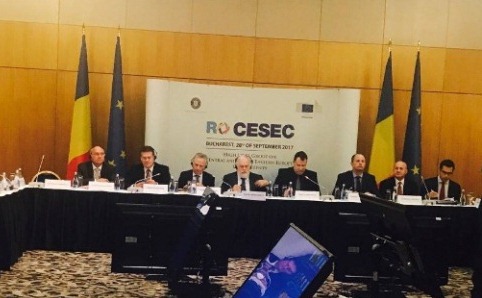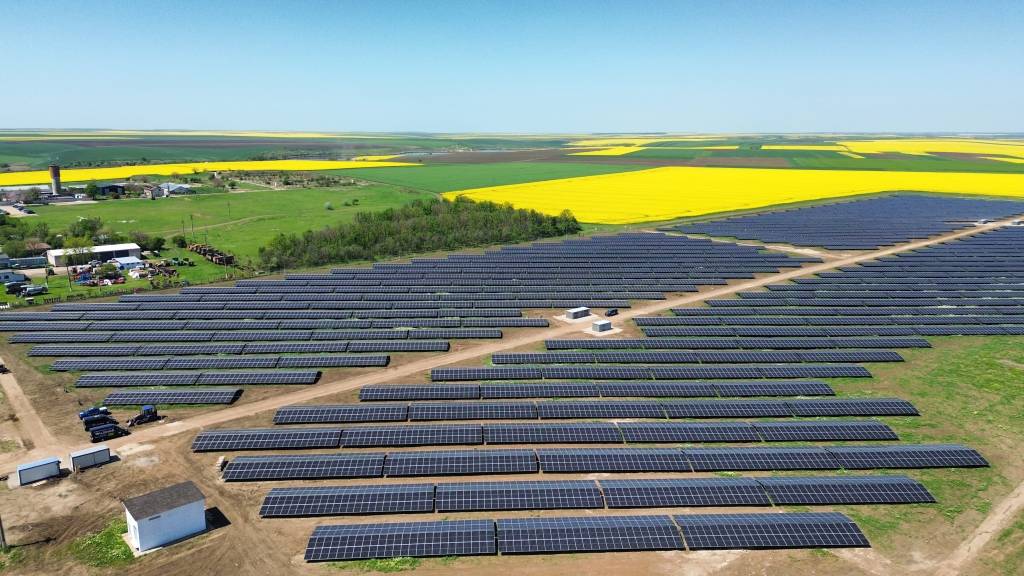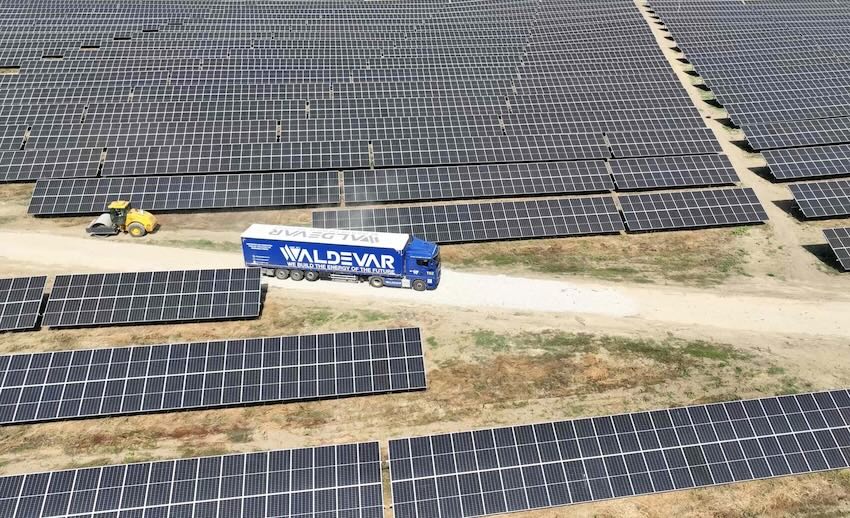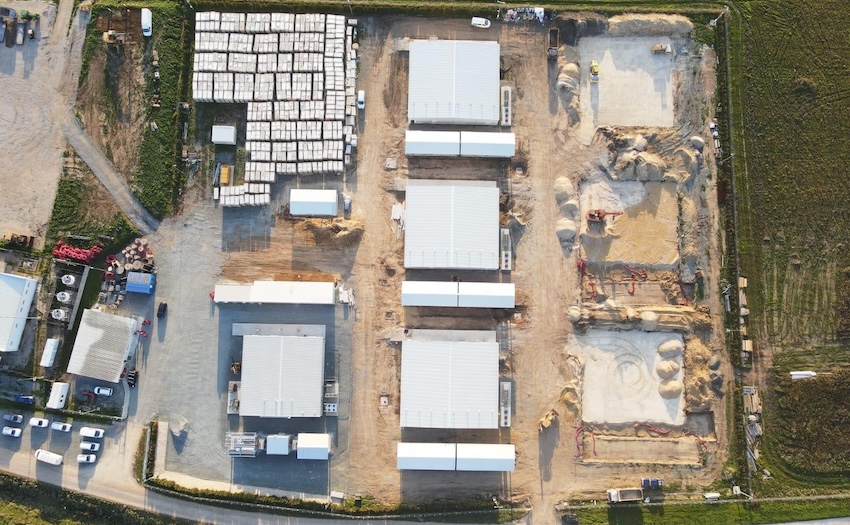Vice-President of the European Commission, on visit to Romania: You can become energy exporter

The Vice-President of the European Commission Maros Sefcovic, currently on an official visit to Romania, said, at the Aspen energy summit, that Romania is rich in natural resources and that it can develop rapidly in terms of renewable energies.
Also, Sefcovic hopes that Romania will become energy exporter.
"You are rich in natural resources and I think you are developing very quickly in terms of renewable (n.r. - energy). Now you are part of the world's largest economy, so I hope you’ll become a bit more active in these markets, grow your energy wealth, energy production, and become energy exporter" Maros Sefcovic stressed, Mediafax reports.
He added that Romania has progressed in the field of renewable energy.
"About renewable energy, I know that you have had your own experiences, that you have gone through difficult phases, […] but you have made wonderful progress. You are one of the few countries that have reached their target before deadline. I believe that you will be able to use the good results [...] and sell your success to those countries that have problems in reaching the standards," Maros Sefcovic pointed out.
Romania, leading actor in two strategic projects for EU
Together with the Ministry of Energy in Romania, Toma-Florin Petcu, European Commission Vice-President discussed also about two strategic projects for the European Union, BRUA and AGRI, in which Romania would play a major role.
BRUA pipeline is meant to interconnect the gas networks in Bulgaria, Romania, Hungary, Austria, ehancing energy security in these regions by diversifying gas supply routes.
The project would ensure the interconnection of the gas transmission systems in Bulgaria and Hungary with the gas transmission system in Romania. On the Romanian territory, the proposed project would allow access to the future major gas infrastructure projects such as TAP, gas sources from Central European gas hubs and potential gas transportation from Black Sea deposits.
According to the project’s objectives, it will result in direct and indirect energy efficiency and carbon emissions reductions by modernising the Romanian gas infrastructure and contributing to the switch to gas from more polluting energy sources.
AGRI aims the transport of natural gas from Caspian region to Europe. It is expected to transport liquefied Azeri gas from Georgia, across the Black Sea, to a LNG terminal to be built on the Romanian Black Sea Coast. From that point, the gas will be pumped through Romanian natural gas transmission system to Hungary, and further transported to the European market.
“I had a meeting with European Commission Vice-President Maros Sefcovic immediately after his arrival in Bucharest for the 4th ministerial meeting of the (Central and South Eastern Europe Gas Connectivity (CESEC), an event organized by Romania and the European Commission. At the official meeting, I brought up the subjects in which Romania has an important role not only for the region but for the whole European Union, and I refer to BRUA and AGRI. I am convinced that BRUA will benefit from the support of the European Commission to be built and finalized according to the initial agreements between all the participating states.” Toma Petcu stated.
The need that led to the foundation of the CESEC initiative group in 2015 was the accelerating the integration of gas markets in Central and Southeast Europe and the need to diversify natural gas supplies, Minister of Energy recalls.
“The CESEC meeting in Bucharest is, above all, an opportunity to harmonize the efforts of our countries to build an integrated and functional energy market. I also firmly believe that the decision to extend CESEC's area of action to energy and energy efficiency is a key moment in deepening regional cooperation between our countries” said Toma Petcu.
Petcu is convinced that the promotion of regional cooperation will lead to an increased degree of stability for each country involved. Thus, for Romania, the initiative on Connectivity in the Central and South-Eastern Europe in the field of energy represents an opportunity to confirm the steps undertaken by in the energy sector, while also contributing to the achievement of the Energy Union goals in ensuring the security of energy supply, by supporting the priority development of transport routes that diversify energy sources.
Before the visit in Romania, European Comission Vice-President Sefcovic said that he congratulates Romania for having already achieved its 2020 targets for renewable energy, as well as for the excellent progress towards achieving energy efficiency.
On the other hand, he stressed the need to continue the plans for reforming the energy market in Romania, including by developing a future-oriented regulatory framework, in addition to improving interconnectivity with neighboring countries.
”We can overcome the vulnerabilities of the system”
Energy efficiency is the best measure in the fight against energy poverty and will both reduce bills and protect the environment, Maros Sefcovic said on Thursday, according to Agerpres.
"We discussed with the Prime Minister (Mihai Tudose - nr) and Toma (Toma Petcu, Minister of Energy - no) yesterday and I agreed that energy efficiency is one of the best measures to counteract energy security, if we manage to reduce bills for municipal buildings, hospitals, schools, theaters," the European official said.
According to him, all countries should learn how to use the money from the public budget, from the EU budget, to add to the sources coming from the private sector and channel them towards investments in energy efficiency projects.
"Two years ago, when we formed CESEC, we committed to not expect mega projects, but to take our energy destiny more in our hands and focus on interconnection, market liquidity, and access to at least three sources of gas for all countries. I think it is a very strong signal for the inhabitants of these countries who still remember what happened in 2009 (when Russia stopped gas deliveries to Europe in the middle of winter) and to prove that together we can overcome the vulnerabilities of the system", concluded the Vice-President of the European Commission.
According to a memorandum of understanding signed on 28th of September in Bucharest, the BRUA gas pipeline project will be completed in all four states involved – Romania, Bulgaria, Ungaria and Austria.
"We are in a very advanced phase with the BRUA project. We issued the building permit, we have ongoing procedures for the assignment of the construction. The design part and the equipment part for the stations have already been signed. The contracts for the execution phase are to be signed in December, and the pipeline purchase is almost final," the Minister of Energy Toma Petcu said.According to him, the actual construction will start when the temperatures allow it.






